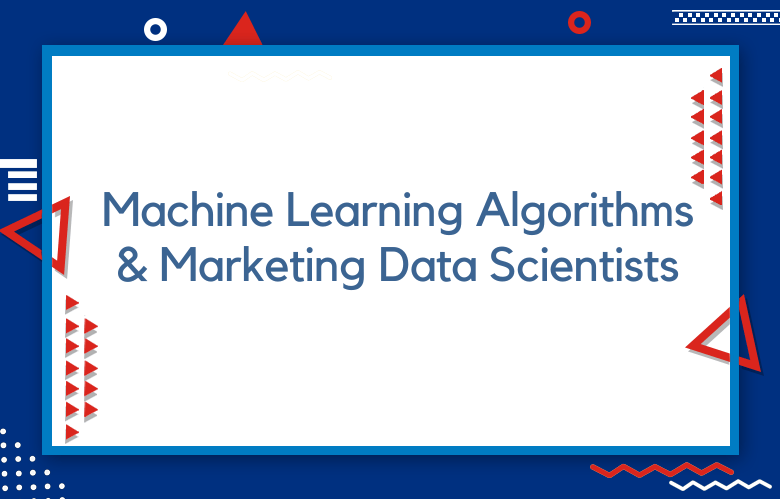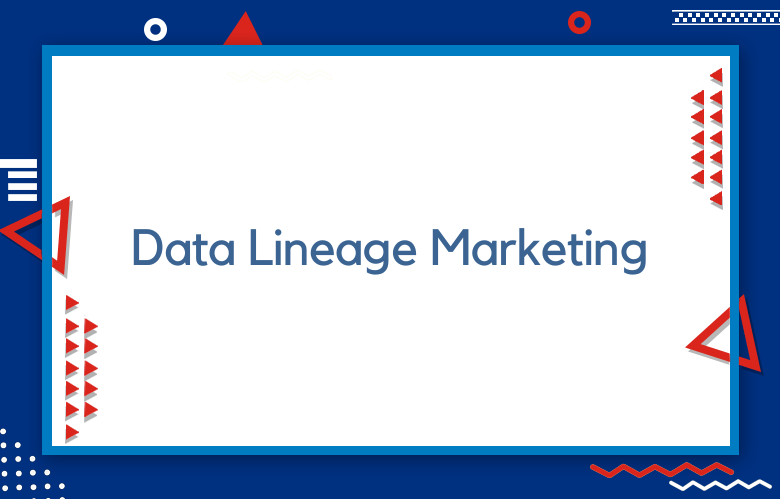Top Machine Learning Algorithms used by Marketing Data Scientists

As marketing data scientists, keeping up with the latest machine learning algorithms can seem impossible. We’re constantly bombarded with new developments in the field, and it’s hard to know which ones are worth our time, energy, and resources.
We will explore some of the top machine learning algorithms marketing data scientists use to help make sense of all the noise.
The Top Machine Learning Algorithms Used by Marketing Data Scientists
Decision Tree
A decision tree is a supervised machine-learning algorithm that uses a tree-like structure to determine the outcome of any given input.
It evaluates each possible outcome based on its expected utility and selects the option that yields the highest return. This makes it ideal for customer segmentation or predicting customer lifetime value (CLV) tasks.
Random forest
Random forest is an ensemble machine learning algorithm that combines multiple decision trees into a single model.
This helps increase accuracy and reduce overfitting because each decision tree provides a different perspective on classifying data points.
Random forest is used for regression problems such as forecasting customer demand or predicting customer churn rate.
K-Means Clustering
K-means clustering is an unsupervised machine learning algorithm that groups similar data points into clusters based on their features. It is ideal for market segmentation or finding similar customers based on their purchase history.
Support Vector Machines (SVM)
Support vector machines supervise machine learning algorithms for classification and regression problems.
They work by finding an optimal hyperplane that maximizes the distance between two classes of data points while still accurately separating them from one another.
SVM can be used for sentiment analysis or predicting future sales trends.
Linear regression
Linear regression is the most basic and widely used machine learning algorithm in marketing.
It is a form of supervised learning that models the relationship between two variables (dependent and independent) as a linear equation.
This algorithm can predict outcomes based on previous data points or find relationships between different variables in a dataset.
Gradient Boosting Machines (GBMs)
GBMs are advanced decision tree algorithms that use gradient descent optimization techniques to improve prediction accuracy even further than random forests can achieve.
GBMs provide higher accuracy and faster training times than other decision tree methods. They can provide precious insights for marketers looking deeper into their customer base and how they will respond to specific campaigns or products/services a company offers.
Support Vector Machines (SVMs)
SVMs are powerful supervised machine learning algorithms that classify data into discrete categories using hyperplanes in feature space (i.e., dividing data points into distinct classes).
Marketers often use this algorithm to identify patterns within customer datasets to better target customers with offers or messages explicitly tailored to them and their needs/interests/behavioral patterns identified within the dataset itself.
Advantages of Machine Learning Algorithms Used by Marketing Data Scientists
- Machine learning algorithms can help identify patterns in data that would be difficult for humans to find.
- Machine learning algorithms can help predict future events, such as which customers will likely respond to a marketing campaign.
- Machine learning algorithms can help marketers personalize their messages to individual customers, increasing the likelihood that the customer will respond positively.
- Machine learning algorithms can help automate tasks that would otherwise be time-consuming for humans, such as segmenting customer lists or analyzing customer behavior.
- Machine learning algorithms can help marketers keep track of customer behavior across multiple channels, allowing them to identify which channels are most effective at reaching and engaging customers.
- Machine learning algorithms can help optimize marketing campaigns by automatically adjusting variables such as budget, target audience, or message based on results from previous campaigns.
- Machine learning algorithms can provide insights into how customers interact with a company’s website or app, helping marketers improve the user experience.
- Machine learning algorithms can help identify which employees are most likely to succeed in specific roles, allowing companies to invest in training and development programs with the most significant impact.
- Machine learning algorithms can monitor social media conversations and provide real-time feedback to marketers about how the public is receiving their campaigns.
- Machine learning algorithms can help protect companies from fraud by identifying patterns in data that may indicate fraudulent activity.
Marketing Machine Learning Consulting
Marketing Machine Learning Consulting is an invaluable asset for businesses looking to take the next step with their data-driven strategies.
It enables them to dramatically improve their ability to make decisions based on insights from a wide range of data sources.
By leveraging machine learning algorithms, companies can extract valuable information and make predictions about future trends to plan more effectively.
With the assistance of a marketing machine learning consulting firm, businesses can gain access to powerful analytics capabilities and uncover hidden opportunities that would have otherwise gone undiscovered.
The primary benefit of working with a marketing machine learning consulting team is that it eliminates guesswork and reduces decision-making time.
Through algorithmic analysis, businesses can quickly and accurately ascertain the most profitable courses of action without wasting resources on unnecessary experimentation or trial-and-error approaches.
In addition, they will generally be able to glean more accurate insights than they would do through manual processes alone.
With the help of a machine learning consultant, companies can integrate numerous data sources into one unified platform to gain greater visibility into their operations and identify opportunities for growth or improvement.
As such, businesses are empowered to make informed decisions faster, better manage resources, and drive higher levels of customer satisfaction with ease.
Conclusion
Machine learning algorithms are essential for marketing data scientists who need to quickly analyze large amounts of data and make accurate predictions about customer behavior or market trends.
Decision trees, random forests, k-means clustering, and support vector machines are just a few of the top algorithms marketing data scientists use today, but there are plenty more out there waiting to explore!
With so many options, it’s essential to research before committing to any algorithm to ensure you’re getting the most out of your investment in time and resources!
Call: +91 9848321284
Email: [email protected]



